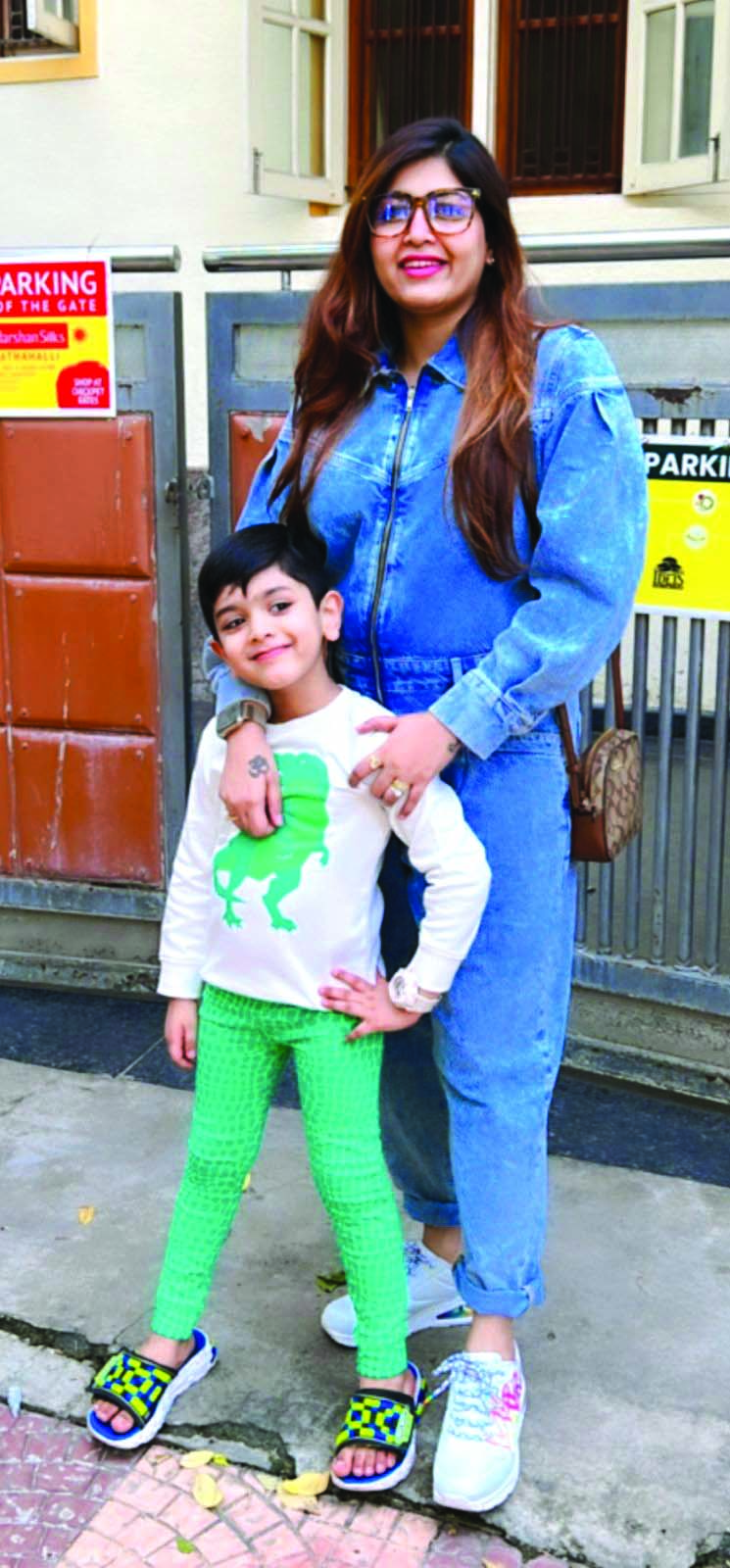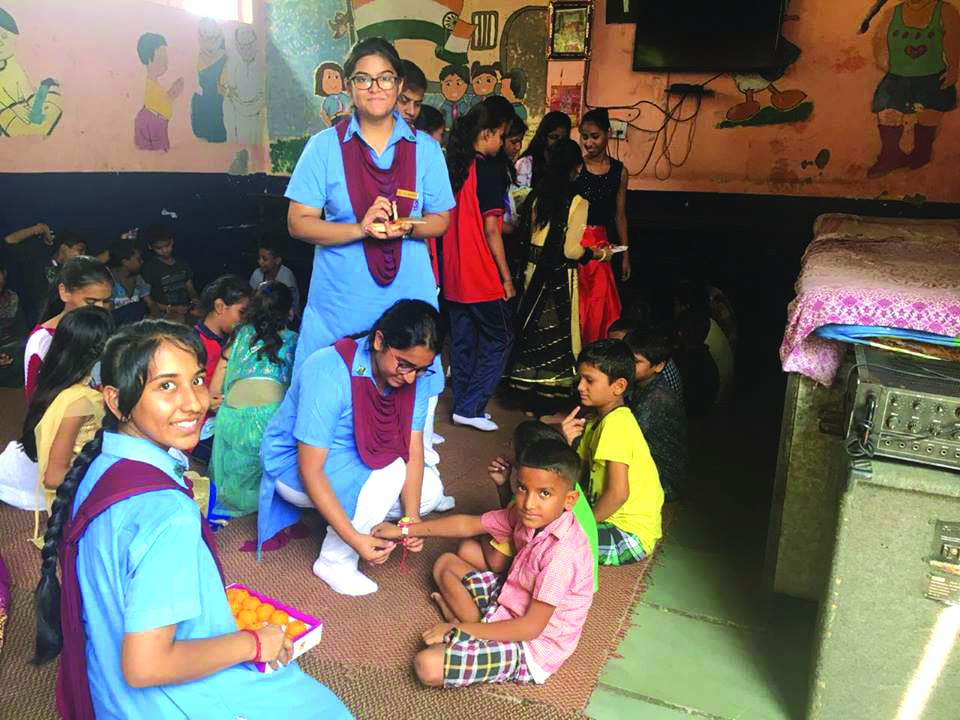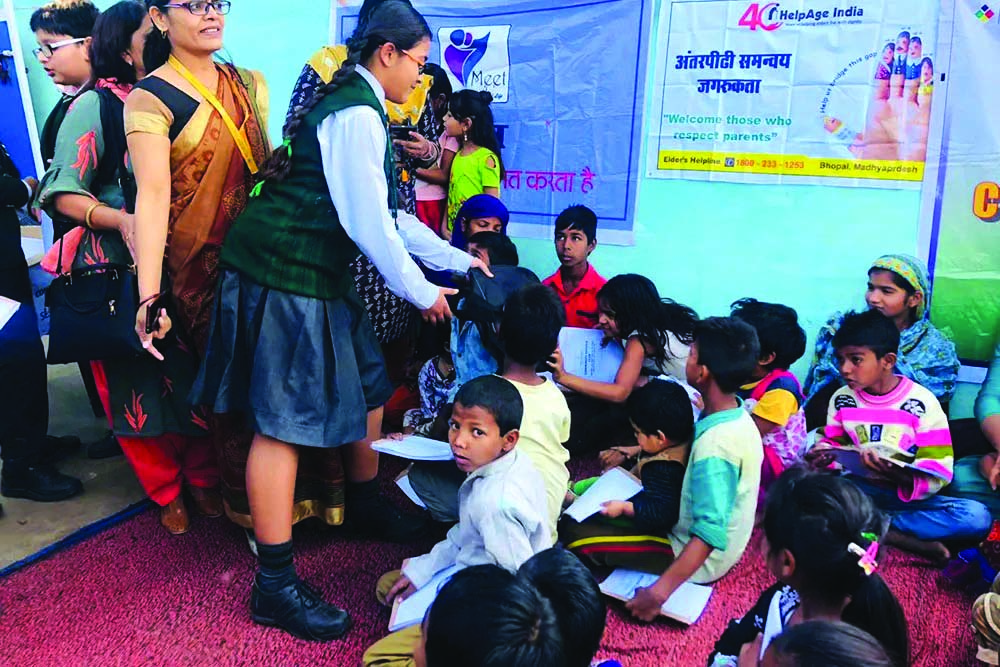Rising awareness of the importance of formal SEL (social emotional learning) is timely in post-pandemic India where social tensions and religions, caste, class and gender fault lines are manifesting in a slowing economy experiencing rising unemployment and inflation

One of the most promising developments in early childhood and K-12 education worldwide is rising awareness among educationists, social scientists — and increasingly within teachers communities — of the importance of children’s social and emotional learning (SEL).
Athough SEL is not a new concept in K-12 education — children’s SEL skills have been developed for several millennia through scriptural instruction, sermons, moral science and civics textbooks — the idea of developing distinct SEL syllabi and curriculums that would address the “missing piece” of education, crystallised in the US in 1994. In that year, a multidisciplinary group of educationists, teachers and child rights activists promoted CASEL (Collaborative for Academic, Social and Emotional Learning).
Building on the research of Dr. James Comer, a professor at Yale University, and John Dow Jr, who introduced a programme to develop the “whole child” in two schools in New Haven Connecticut in 1987-92, a group of educators and researchers began the New Haven Social Development Programme that designed a framework for teaching SEL in K-12 classrooms.
In 1997, nine CASEL collaborators co-authored Promoting Social & Emotional Learning: Guide for Educators. Since then, formal SEL has been integrated into syllabuses and curriculums in K-12 schools across the US and around the world. “CASEL has helped grow SEL from a promising theory to an essential part of education. As a non-profit, non-partisan leader in SEL, we are uniquely positioned to evaluate programming, curate research, inform and partner on implementation,” says a CASEL spokesperson (see www.casel.org).
Since then, particularly in the new millennium, the proposition that children’s social and emotional education is as important as academic learning, has gained traction worldwide. In 2012, Unesco promoted the Mahatma Gandhi Institute of Education for Peace & Sustainable Development (MGIEP) for attaining the United Nations Sustainable Development Goals, especially Goal 4.7. This goal states: “By 2030 to ensure all learners acquire knowledge and skills to promote sustainable development, including among others through education for sustainable development and sustainable lifestyles, human rights, gender equality, promotion of a culture of peace, non-violence, global citizenship and appreciation of cultural diversity…”
Similarly, India’s National Education Policy 2020 also highlights the need for SEL beyond academic proficiency. “Education must build character, enable learners to be ethical, rational, compassionate and caring while at the same time prepare them for gainful, fulfilling employment,” says NEP 2020.
Adds Dr. Akash Paul, general physician at the Pillar Hospital, Port Blair: “Being kind not only to our friends and relations but to strangers is not just about helping others, it is about helping ourselves too. It gives us positive energy, boosts endorphins, builds self-confidence and gives you a sense of well-being. It helps you as much as it helps the other person.”
Rising awareness of the importance of SEL education is timely especially in post-pandemic India, where social tensions and religious, caste, class and gender fault lines are manifesting in a slowing economy experiencing rising unemployment and inflation. Recently released data of the National Crimes Research Bureau, indicates that cases of murder, rape, suicide, kidnapping are rising with newspaper and television broadcasts reporting heinous crimes on a daily basis. A rising number of social scientists, bona fide educationists and educators are warning that the subcontinent’s traditional compassion deficit inherent in the Hindu caste system, routine communal violence, indifference towards the rock-bottom living standards of the overwhelming majority of citizens, child malnutrition and gender violence, has risen to unsustainable levels.
It’s against this backdrop that voices in favour of integrating social and emotional learning and behavioural life skills into early childhood and school syllabuses and curriculums to shape citizens who can build happy, harmonious societies are becoming louder. “Love and compassion are necessities, not luxuries. Without them, humanity cannot survive,” says the Dalai Lama.
With rising new awareness around issues of income inequalities and Planet Earth being ravaged by the fallout of climate change — floods, famine, droughts — rising unemployment, social violence and criminality, several organisations and NGOs have begun a counter-revolution to help adults and children evolve into compassionate, caring individuals. Some of these movements which parents and children could involve themselves with are outlined below
Be Kind Movement
The objective of the London-based Be Kind Movement (BKM, estb. 2015) is to “celebrate and amplify the power of kindness through education.” Its Kindness in School programme conducts workshops to build EQ (emotional quotient) skills that will help children to become empatehtic and compassionate.

Founder Premila Puri, a film producer who utitlises the audio-visual medium to propagate the values of kindness and compassion in children, founded BKM because she suffered continuous bullying in her school years. “We believe that educating the hearts and minds of children and young people through development of emotional intelligence skills is critical in preparing them for challenges they face as children today, and adults tomorrow. This means embedding very early on, a culture of compassion and care in young minds to teach how kindness — or lack of it — can impact the world around them including their peers, friends, family and wider community,” explains Puri.
Be kind T-shirts
Greer Leggat (22), a Lebanese girl afflicted with Down’s Syndrome, has made it her mission to design and sell ‘Be kind’ T-shirts to spread a message of positivity, cheer and goodness. “It’s sad that we have to be reminded to be kind. But in these difficult times, it seems to have become more and more necessary,” says Leggat, who designs T-shirts with the message ‘Be kind’ in her own distinctive handwriting imprinted on them.
Kindness Is Everything

Initiated by Kirsten Garvey, an American mother of two, shortly after the election of right-wing anti-minorities Donald Trump as president of USA in 2016, this movement has incorporated several causes — Black Lives matter, Women’s Rights are Human Rights, No Human is Illegal (immigrant), Science is real, Love is love — into its Kindness Is Everything campaign. These causes are incorporated in a famous placard underlined with the Kindness Is Everything message, which has gone viral in the US and around the world.
To enable parents and teachers to teach children kindness, KIE has devised four challenges:
1. The 24-hour KIE Kindness Challenge Do as many different acts of kindness as you can in 24 hours. After that, challenge someone else to do the same.
2. Don’t Break the Kindness Challenge chain Do an act of kindness towards a different person every day as long as you can.
3. The Travelling Kindness Challenge Do one act of kindness in every place you visit – new city, state or country. Resolve to spread your kindness in as many new places as possible.
4. The 30-Day ‘I Love You’ Kindness Challenge Every day for 30 days consecutively, make an acquaintance or loved one laugh or smile through daily acts of kindness.
For further and better particulars about the Kindness Is Everything movement, visit https://www.kindnessiseverything.com/
Random Acts of Kindness Foundation
Promoted in 2016, the foundation provides a free-of charge evidence-based social and emotional learning curriculum for classes K-VIII which is being used by 30,000 primaries globally. It also offers a 16-weeks elective course for high school students and recently introduced a lesson for pre-primary children. For further particulars, see www.randomactsofkindness.org.

Fortunately, despite the Indian subcontinent having a long tradition of institutionalised cruelty, indifference and callousness towards people at the bottom of the country’s iniquitous socio-economic pyramid, the opposite is also true. A large and growing community of woke citizens is becoming aware that in the larger interest of transforming India into a just and harmonious society, the country’s upper and middle classes need to exhibit and practice great empathy, compassion and consideration towards the majority of citizens struggling for food, shelter, clothing, education and healthcare.
“Children learn from their environment. To develop our children into empathetic and caring citizens, we teach them to help the poor and feed hungry people around us, as their toil and trouble for meagre rewards helps us. Children can pick up these values very easily if parents practise them. For instance we encourage my six-year-old son Jayavardan to love animals and feed them,” says Jyoti Surana, a Bengaluru-based homemaker.
The proposition that parental practice of acts of compassion and kindness are more important than preaching is gaining currency. “I trained my two children to be kind by example because I believe that is the best way to teach. My husband and I practise kindness in the presence of children — touching my parents’ feet in the Indian tradition, feeding animals, donating clothes to needy people. My two children observe these small acts of kindness on a regular basis. Therefore, I am sure they will continue to practice compassion and humanity when they grow up,” says S. Chandra, a Puducherry-based homemaker.
Institutional Kindness

Although historically, HNW (high-net-worth) individuals have a tradition of donating large sums of money to charities and NGOs engaged in helping the needy, acts of kindness and compassion towards less fortunate members of society need not be practised solely by individuals. Driven by the Central government that makes it mandatory for large companies to expend at least 2 percent of net profit under CSR (corporate social responsibility) legislation, as also by the need to win societal goodwill and transform their offices and factories into joyful, high productivity workplaces for employees, corporate enterprises are increasingly practising kindness and compassion. “We work on the simple principle of human values. What we do at the organisation level will be reflected at the personal level. If an employee needs assistance to meet family needs, I need to understand. My cooperation will in turn makes them kind to their families. Employees are the pillars of any organisation and they need to be content to become productive. If they are happy, they will practice kindness towards their families and our customers, and there will be a positive environment at work and home,” says Goutham V, store manager at Starbucks, Bengaluru.
However individuals and corporates practising acts of compassion and kindness are likely to have limited impact in an ill-educated nation with a population of 1.4 billion. Therefore, teaching children the values of empathy and kindness towards strangers in their school years is a more intelligent proposition. And a growing number of schools and higher education institutions with enlightened progressive leaders are jumping aboard the compassion wagon.
“We have mandated writing about kindness and gratitude in our children’s journals in all our schools. Children need to learn the virtues of gratitude and importance of random acts of kindness. Gratitude and compassion are closely linked virtues. We want to make kindness a habit that our children develop in their school years,” says Veni R, head of academics at the teninstitutions strong Bengaluru-based Samsidh Group of education institutions which has an aggregate enrolment of 8,000 children mentored by 700 teachers.
Fortunately the socially beneficial advantages of inculcating the kindness and compassion habit — and stressing the importance of elementary good manners in a conspicuously ill-mannered and hierarchical society — is also spreading within the teachers’ community.
“As a teacher, I use real-life examples to engage my students and make them learn the social positives of practising kindness and compassion on a daily basis. I encourage them to exchange stories highlighting the advantages of practising kindness, especially towards strangers,” says T. Divya, an English teacher at the Mohanpura School, Andaman.
Adds Jhansi Devi, teacher at St. Mary’s School in the Andamans which has an aggregate enrolment of over 200 students: “I invite my children to do simple things that highlight kindness to others during school hours. Like to brighten the day of a friend, help a classmate clean up after a project, talk to a student who is ignored and isolated by others, and help a friend pack her bag. These small acts of kindness build lasting relationships.”
Even if belatedly, awareness of the social benefits of integrating SEL into school curriculums is becoming widespread. “Research has shown that teachinglearning methods based on common sense, experience and scientific findings can cultivate key values like compassion, love and empathy. Viewed from this lens, cognition is incomplete without development of the heart. What is needed is a new-age literacy model involving teaching-learning methods that encourage the development of the heart and mind together. We must inculcate pro-social capabilities, interpersonal abilities and emotional resilience in children in their early learning stages, all of which are powerful levers to create caring young individuals. This will enable them to manage their emotions, demonstrate compassion and empathy, form healthy relationships, navigate life situations and go on to become nation-builders,” write business tycoon Ajay Piramal, chairman of Piramal Enterprises and Monal Jayaram, director, Piramal Foundation, in an insightful essay published in the well-known daily Mint (September 9).
It’s an idea whose time has come.
Ideas for Acts of Kindness

In an increasingly fractious society in which the political class seems foolishly committed to divide-and-rule strategies unmindful of the reality that social and societal harmony is a necessary pre-condition of national development, the onus of nurturing the next generation into disciplined, responsible and compassionate citizens has devolved upon the parents and teachers communities. Here are some ways and means by which parents and teachers can encourage children to practice kindness and compassion from early age.
• Sort out surplus, good condition clothes and give them to homeless people.
• Prepare meals at home for destitute and slum dwellers and distribute at a pre-arranged site.
• Smile at visibly sad and depressed people. Wish them all times of day.
• Peer teach students struggling in school.
• Help your parents with chores without being requested.
• Plant trees for future generations.
• Surrender your seat on the bus or in the park for the elderly and/or infirm.
• Support children being bullied.
• Compliment someone who seems stressed or tired.
• Share special treats.
• Offer a glass of water or juice to home delivery personnel.
• Design Best Teacher, Best Mom or Best Friend certificates to make them feel special.
• Help someone struggling with an activity or task.
• Actively look out for people in need to help in some way.
• Invite others to join you to help someone.
• Speak positive words of encouragement to those who need them.























